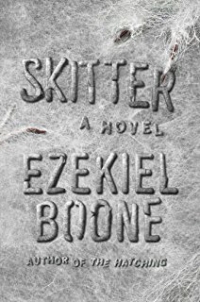Defectors by Joseph Kanon
 Friday, June 23, 2017 at 8:23AM
Friday, June 23, 2017 at 8:23AM 
Published by Atria Books on June 6, 2017
Simon Weeks is running a publishing company, having been forced out of the State Department after his brother Frank, a CIA agent, defected. Now, in the Khrushchev years, Simon has the chance to publish Frank’s “tell all” book. But first, he needs to meet Frank, for the first time in years. To that end, Simon travels to Moscow.
There is tension between the brothers that goes beyond Frank’s defection. Some of it involves Frank’s wife, who traveled with Frank to Moscow. But the tension mounts when Simon learns that Frank wants to defect … again … this time betraying the Soviets by returning to the US.
In the best tradition of spy novels, the reader wonders what sort of treachery is really afoot as the novel progresses. Joseph Kanon keeps the reader guessing as Simon second-guesses then third-guesses everything he is told. Suspense elevates when things get sticky, but it isn’t always clear for whom the reader is supposed to root.
The novel’s background accounts for the plural title. Guy Burgess and an assorted crew of spies spend their nights drinking and moaning about the boring lives they’ve settled into, quite a change from the exciting lives of deception they once lived. Some of the defectors and their wives play key roles as the story unfolds. Some are conflicted, prone to second-guessing the decisions that defined their lives, while others seem quietly resigned to the isolated lives that Soviet heroes live when they are never quite trusted by the Soviet government. Only Frank, an active officer in the KGB, seems to have gained the trust of his superiors, but as he well knows, nobody is trusted, and perhaps nobody deserves to be trusted.
The surprising plot ends with two tight twists. That is reason enough to recommend Defectors, but the novel’s emotional resonance comes from the complexity of its characters and their shifting relationships. Everyone seems to be betraying everyone in Defectors. Everyone is playing a role, some unwillingly, some for the love of the game. The shifting and uncertain relationship between the two brothers, in particular, is masterful.
RECOMMENDED



